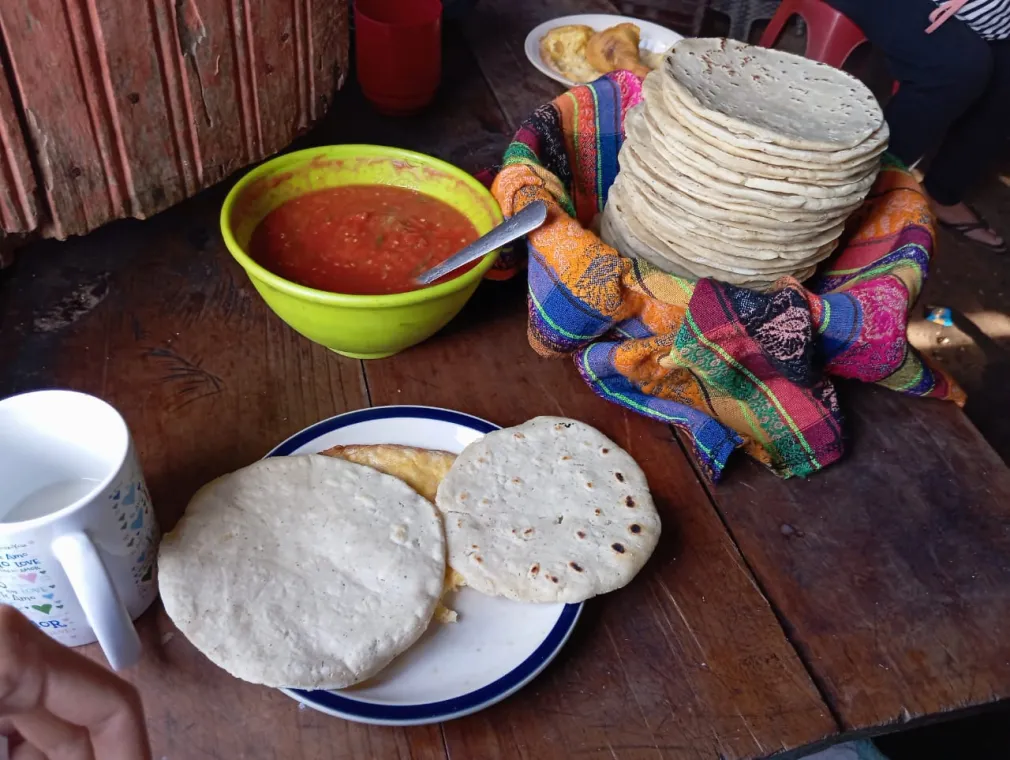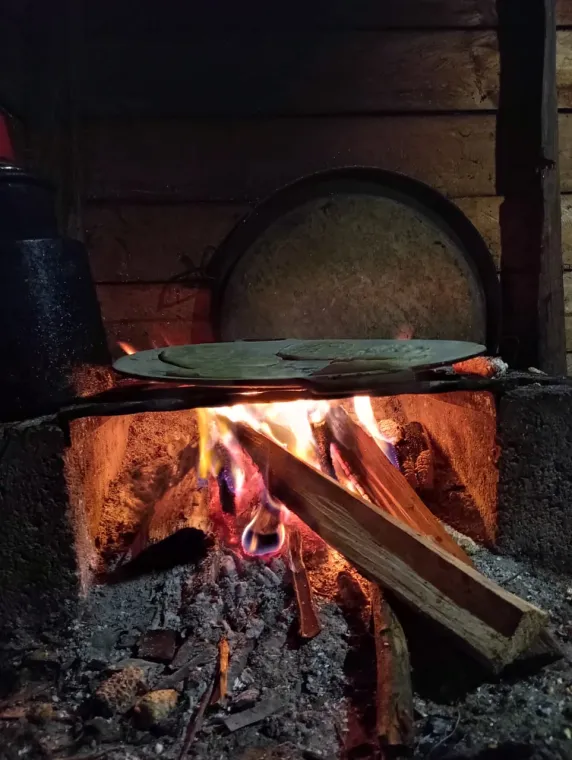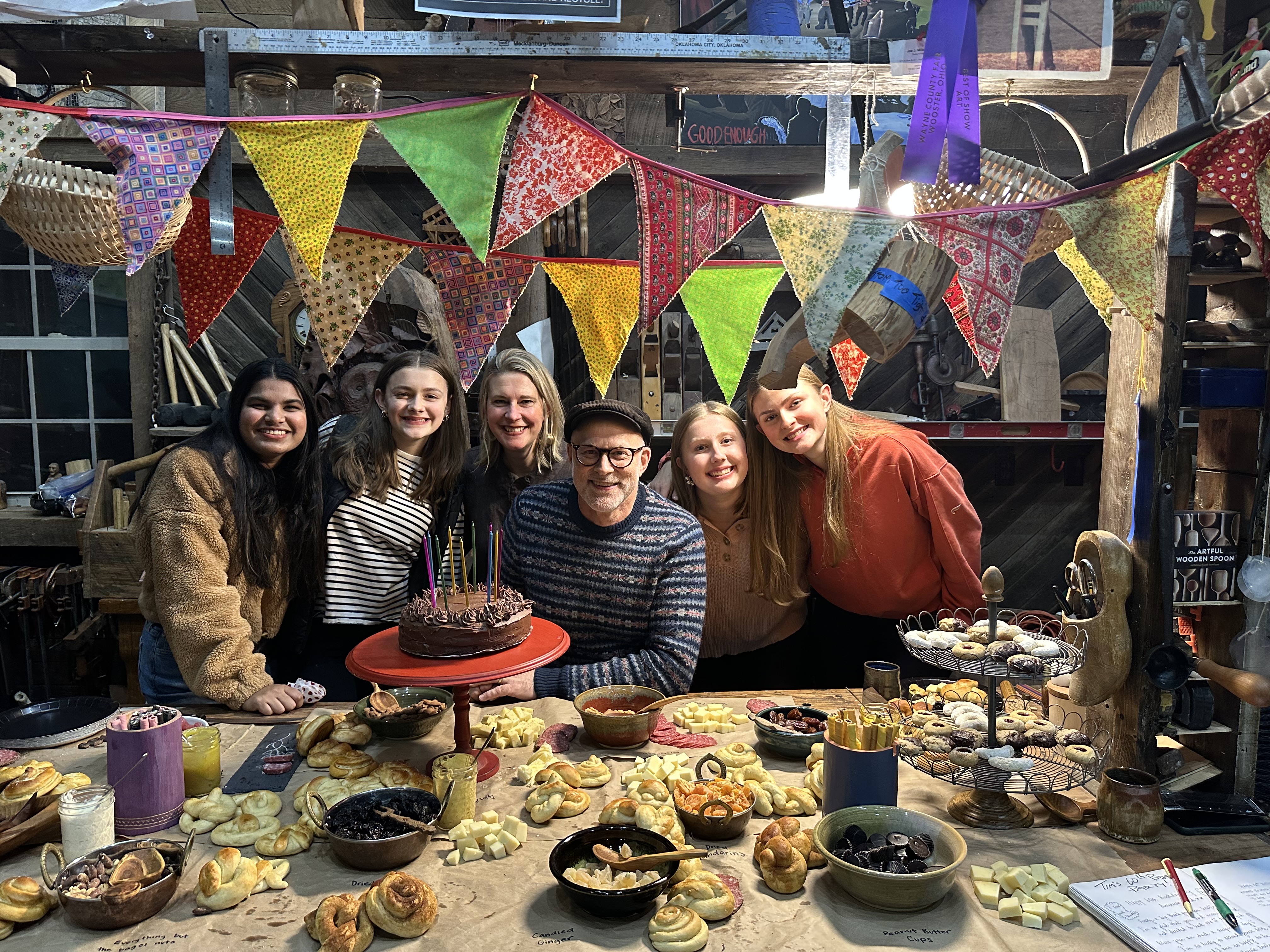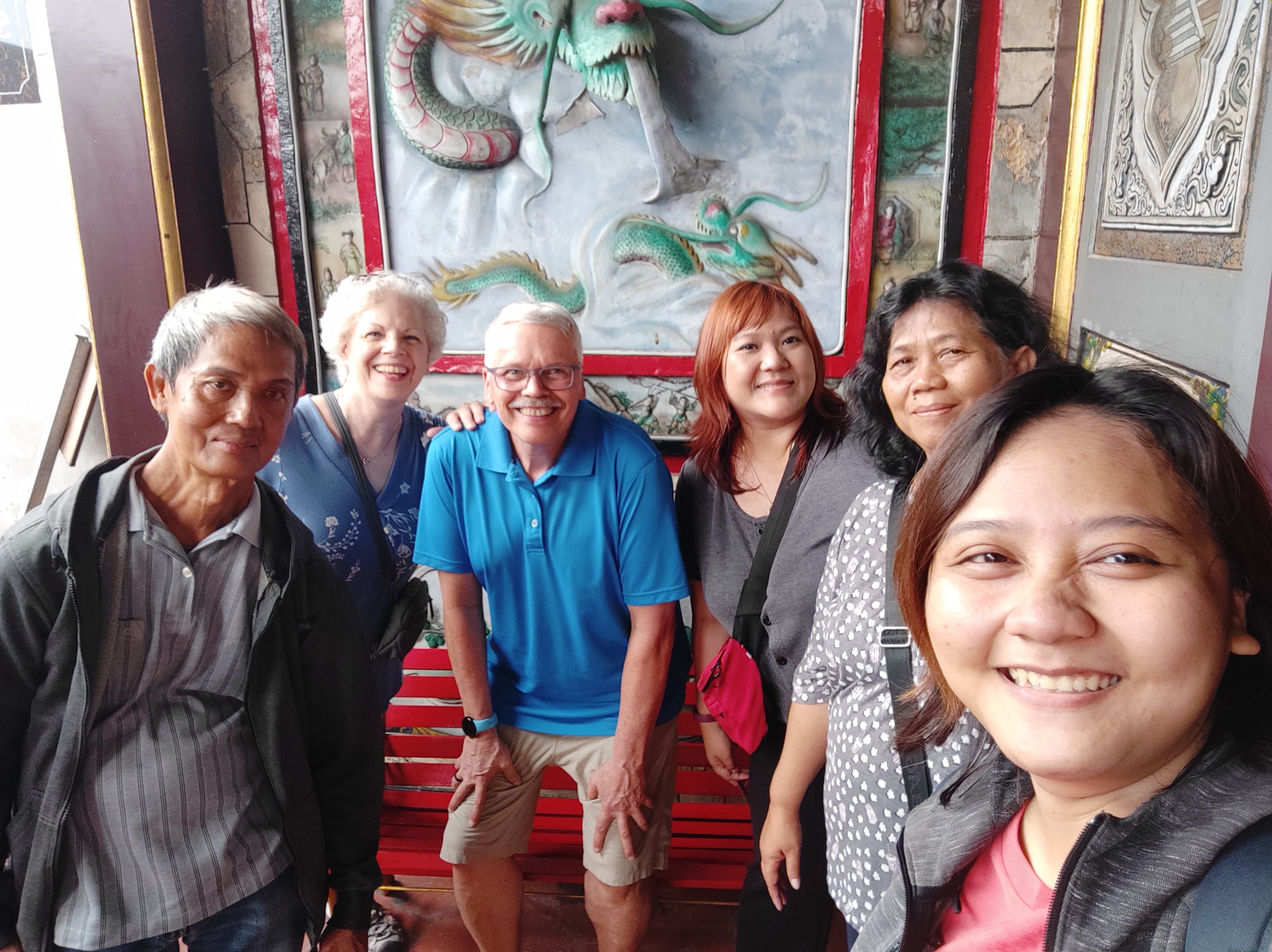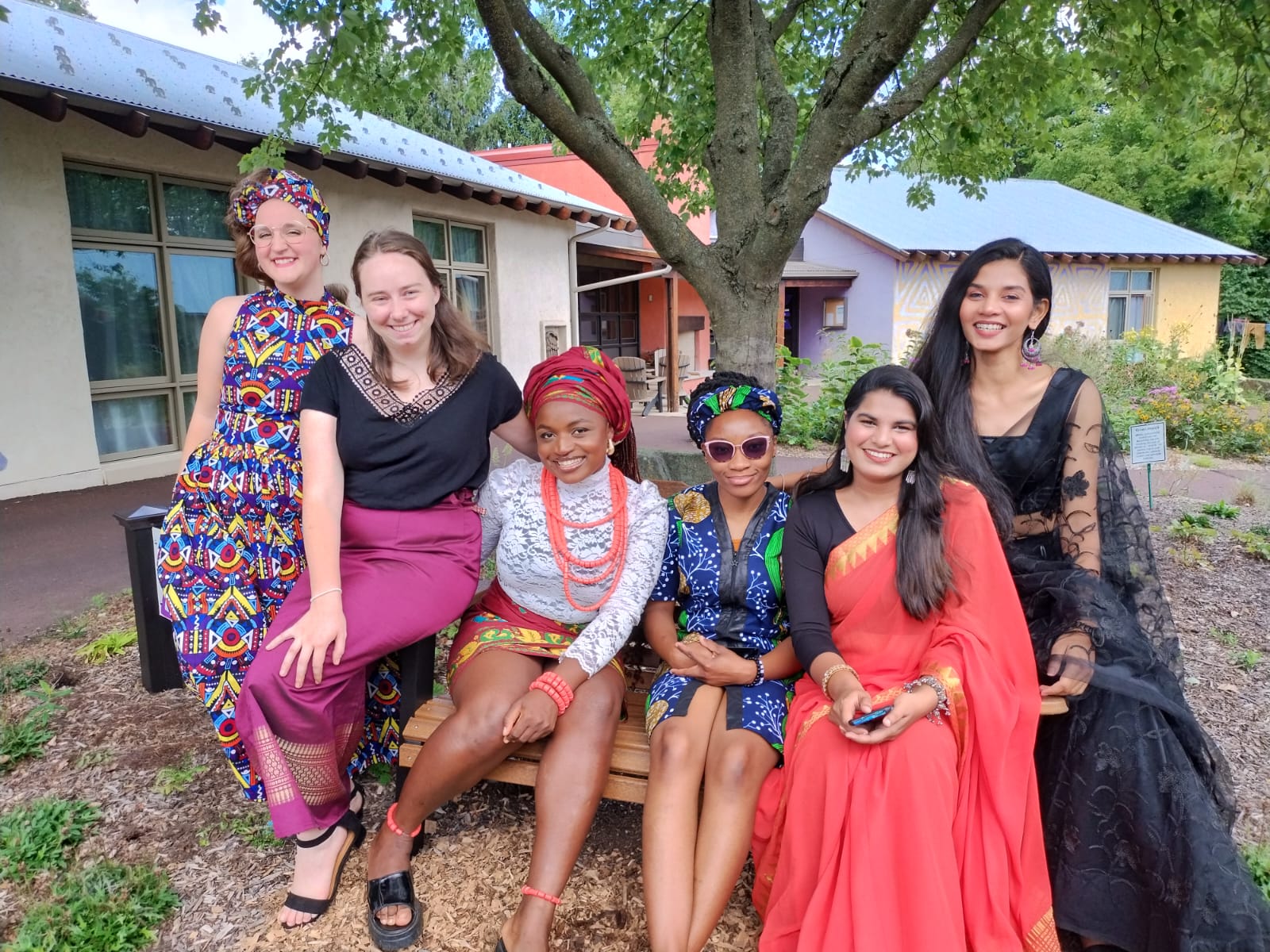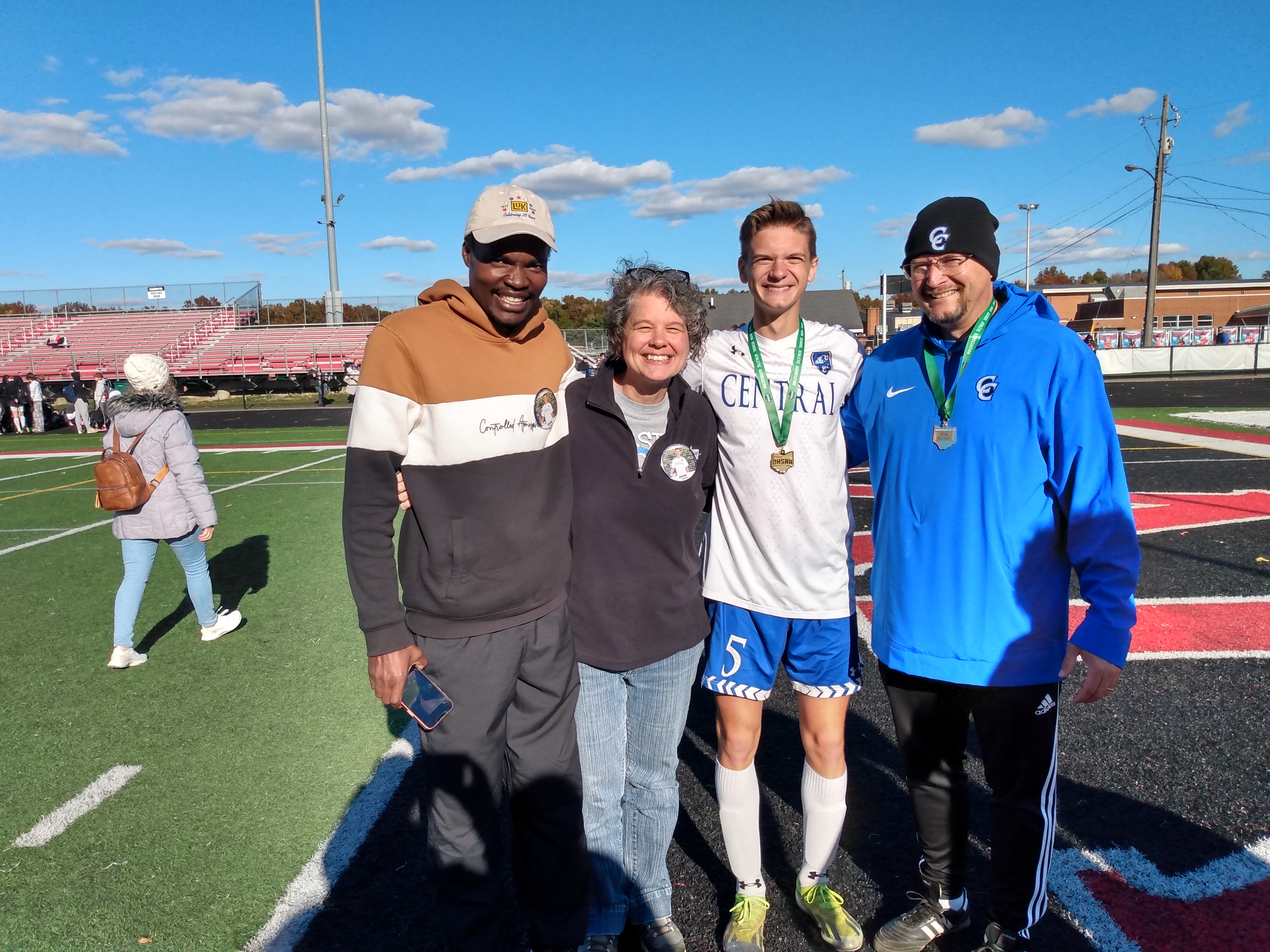On serving and seeing God everywhere
A two-time participant in MCC's young adult programs reflects on the inspiration and guidance she's found in working with K'ekchi' Maya youth in Guatemala.
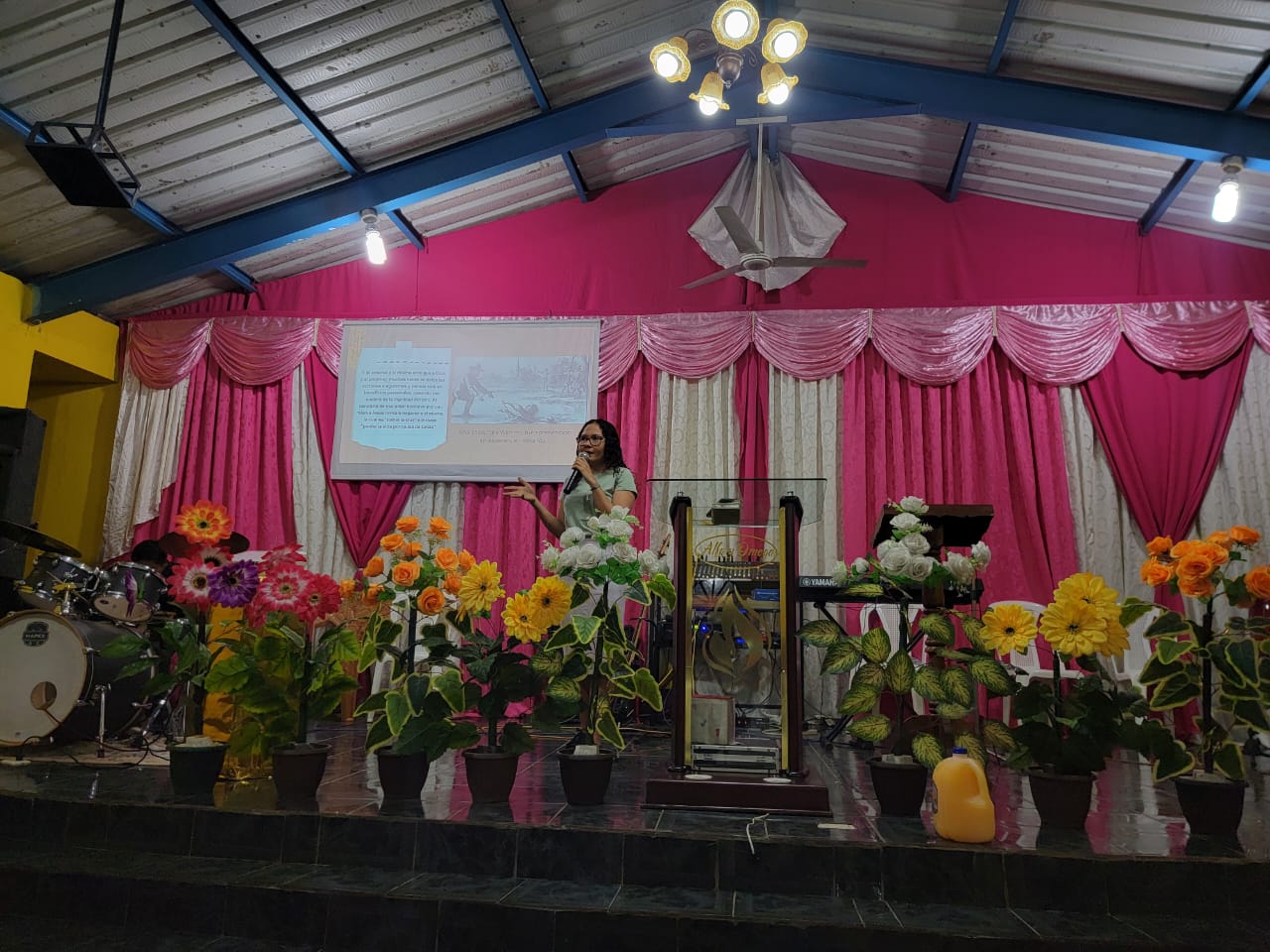
Lilibeth Guzmán Macea remembers the first time she visited a K'ekchi' Maya Mennonite church in Guatemala. It was early into her second service term with MCC’s young adult programs, and she’d come to worship with her host family, including host sister Claudia. Upon entering the space, all, including church leaders, paused to kneel and pray.
From there, they split off, men on the left side of the church, women on the right.
The voices of male congregants, for a time, dominated the service, resonating through the space. The women largely stayed silent. Then, Claudia raised her voice in song and the other women in the congregation joined in. “My heart was moved to tears as I felt their pain and understood what it meant for them to be there.”
Fittingly, Lilibeth, likens the call to serve to a drum beating loudly. The call is so strong, and so steady, that after completing one service term through MCC’s young adult programs, she returned for another one, twice as long.
Here is some of what she has learned from pursuing these unique opportunities to volunteer abroad.
A twice-in-a-lifetime opportunity
Lilibeth learned of MCC’s young adult programs through her Mennonite church in Córdoba, Colombia. Traveling abroad to serve sounded compelling, but, she says, “I always postponed it … I saw it far from my reality.” As some of her friends served with MCC, then came home and told her about all they’d learned, she finally decided to apply.
She first participated in Young Anabaptist Mennonite Exchange Network (YAMEN), a joint program of MCC and Mennonite World Conference that gives young Christian adults from outside the U.S. and Canada the chance to serve abroad for one year. Between 2022 and 2023, she worked as a community facilitator with MCC partner Comisión de Acción Social Menonita in Honduras.
“During my time of service (with YAMEN), I felt the little drum inside me begin to sound loudly as I left my comfort zone. … The YAMEN program was an opportunity to explore my abilities and serve others,” she says. “But I still had the intention of continuing to be an instrument of God in other spaces, so I decided to be in Seed,” which is a two-year international service program that has taken her to Guatemala.
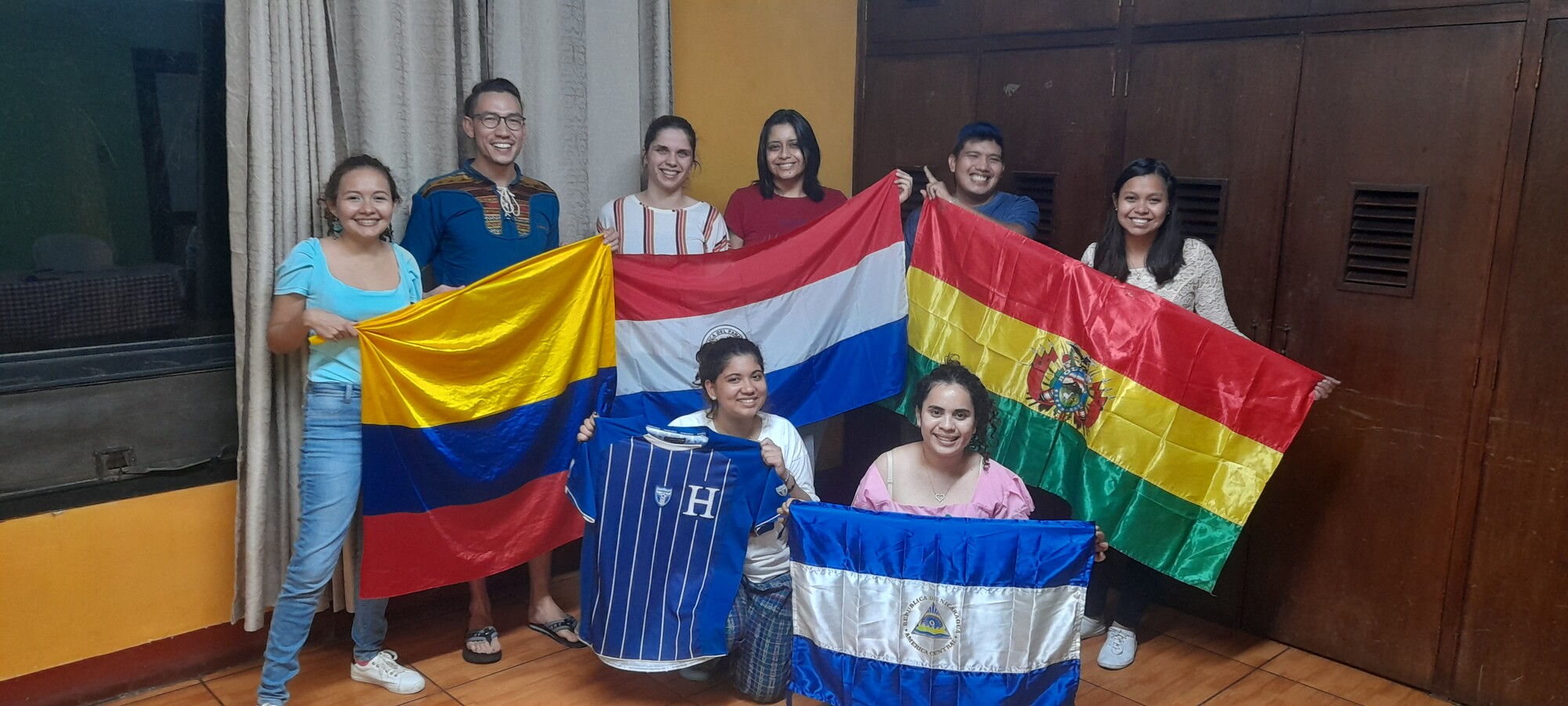
Now, through Seed, she is serving with MCC partner Iglesia Nacional Menonita Evangélica de Guatemala (National Evangelical Mennonite Church of Guatemala, INEMGUA), working with youth groups in predominantly K'ekchi'-speaking churches. “I accompany them in their youth services, reflections, songs,” she says, as well as workshops in topics like peacebuilding for those called to serve in the church.
Lilibeth’s days vary greatly. Some days she wakes up at 4 a.m. to take an hours-long bus ride from San Pedro Carchá, the town in the district of Alta Verapaz where she lives, to visit a youth group. Once the bus arrives, she leads K'ekchi' Maya youth in games, songs, discussions on how to serve others and quiet reflection time. She often joins them for lunch — usually spicy chicken broth, tamalitos, corn tortillas and coffee.
In the communities Lilibeth serves, school drop-out rates are high, largely because youth need to work to help support their families. In response, INEMGUA operates two schools in Alta Verapaz that offer flexible hours so that students can continue in their studies despite the economic realities they face. On some weekends, Lilibeth teaches at one of these schools and holds workshops for youth on topics like self-care and preventing sexual violence. In communities where women have few leadership opportunities, she’s cherished moments when female congregants have felt safe raising their voices and discussing the challenges they face.
“It has been revolutionary and challenging to be able to accompany youth processes of the K'ekchi' Mennonite communities,” she says. “They are young people who are clearly willing to serve and be in the midst of the needs that others have.”
Learning the language, embracing the culture
Other days, Lilibeth attends K'ekchi'-language church services with the youth groups. “Their liturgies intertwine Biblical knowledge and the Maya worldview that identifies them as K'ekchi',” she observes. She sees this cultural influence in everything, down to the colorful, ankle-length woven skirts that her sisters in Christ wear. “One day I heard a phrase … ‘the weavings are the books that the colony could not burn,’” she says. “They have their history, and every thread, every figure and every color are related to nature and to their world.”
As a Spanish-speaker, she says that overcoming the language barrier has been a challenge, but that it is so crucial to her work in the church. “Their Bible is in K'ekchi' and I have noticed that the interpretation is very much towards the healthy relationship of all; obedience and respect to the Creator God who invites us to solidarity and respect for others.” Traditional corn tortillas are used in worship, and all are welcome to partake. “God is prayed to for rain, crops, cornfields, cardamom, water. … This relationship with Mother Earth is also very evident in the Mayan cosmovision. Offerings to God are sometimes made in kind, for example, sacks of corn, flowers, chickens, eggs, coffee. It is as if when God answers a prayer, those who pray can extend that blessing to others.”
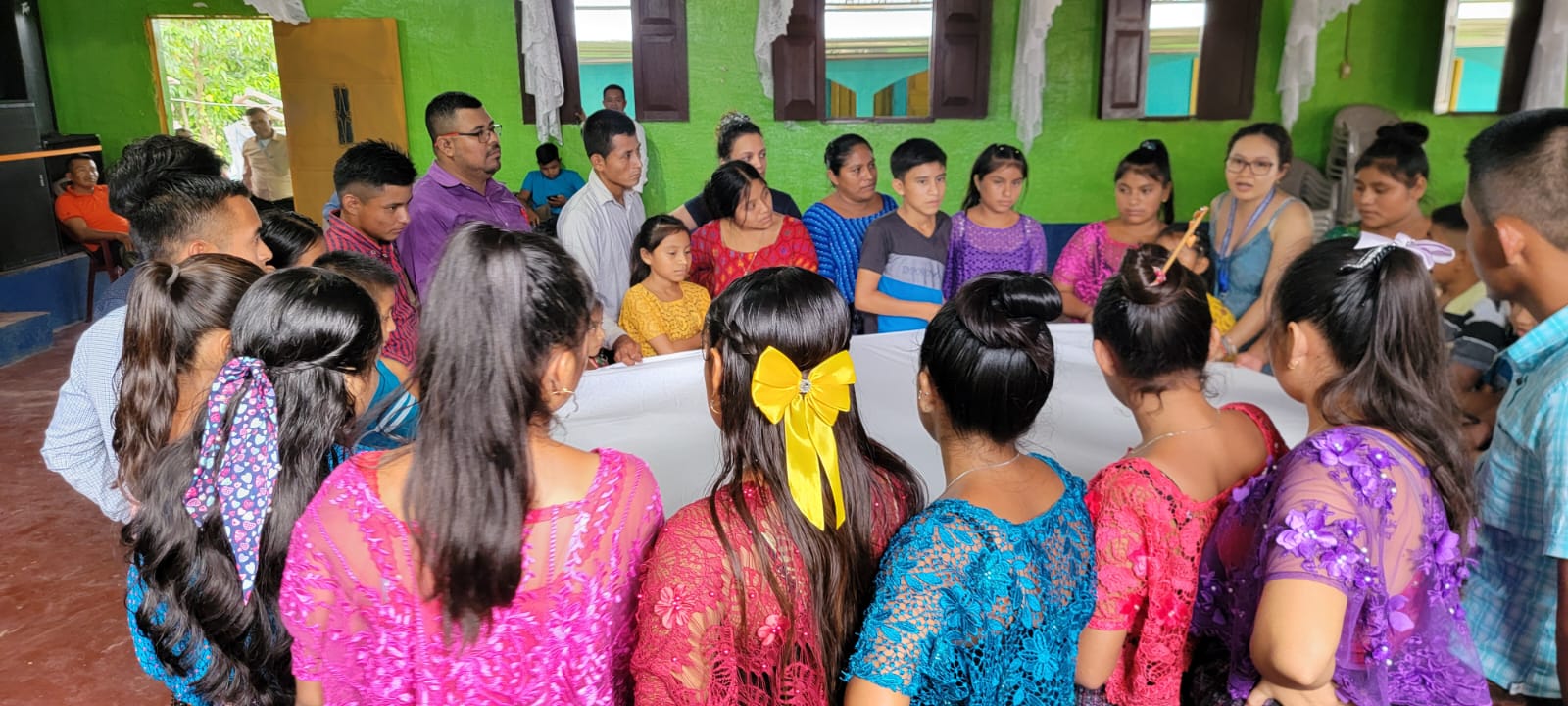
She often works through a translator when meeting with youth. But, she says, everyone has shown her extraordinary hospitality and great care, even if communication is tricky. “I feel it every time I am with them, from opening the doors of their house to me, giving me space at their table. … You feel good being in their spaces, even though they don’t speak to you in Spanish, and you don’t speak to them in K'ekchi'.”
In her first year, she has stayed with K'ekchi' Maya families overnight, enjoyed meals with them, attended birthday celebrations that went until midnight and seen the way that community members “share chicken soup, sing together, collect money for those who need or are sick.”
The hospitality she’s been shown has strengthened Lilibeth resolve to learn K'ekchi'. And as her skills have improved, she’s been given a space to address the church in the language. “It has been a great joy for me and them,” she says.
And in times that she can’t fully follow what’s being said in worship, God’s messages still come through loud and clear. “Feeling God through their prayers in K'ekchi', to feel the pains and worries with which they pray, has made me see God in the midst of this great linguistic barrier.”
Feeling God through their prayers in K'ekchi', to feel the pains and worries with which they pray, has made me see God in the midst of this great linguistic barrier.”
Lilibeth Guzmán Macea
Seed participant in Guatemala
Reflecting on the ways that the Seed program has allowed her to grow in her faith, Lilibeth says, “I have learned and unlearned what one day I believed was my meaning of life.” She’s embraced that “God is in everything,” not just in church. “He sits at the table and goes with me along paths full of mud.”
She has also discovered the importance of taking time to herself. “It is important for a service worker to be able to have time to recharge and rest, because otherwise, it is difficult to function” and be fully present in their role. She values down time spent working out, listening to music, catching up with friends and utilizing the physical and mental wellness resources MCC provides. “It’s good to have a support network.”
Serve abroad with MCC
A year into her service term, Lilibeth reflects that “a Seed participant has the possibility of being a safe place and bearer of hope” for communities and individuals as they raise their voices and navigate challenges. “It is also the opportunity to dedicate two years to walk in the everyday, to understand the needs of others.” She encourages Seed participants to take advantage of the opportunity of a deep cultural immersion, to ask questions and to connect with people.
“Don’t be afraid,” she advises future participants. “Trust that God knows what He is doing with you. … Trust that all this is helping you and makes you part of the plans of the kingdom of God.”
MCC offers a range of ways for young adults to make a difference across the world. To learn more about YAMEN, Seed and other transformative service opportunities, click here.
Lilibeth Guzmán Macea is serving with Seed from 2023-2025. Sienna Malik is a writer and assistant editor with MCC U.S.
Top photo: Seed participant Lilibeth Guzmán Macea leads a lesson on Jesus' teaching on ethics and Dirk Willems' compassion for his enemy at Central Mennonite Church of Carchà in Alta Verapaz, Guatemala. (Photo courtesy of Lilibeth Guzmán Macea)
Give to young adult programs
Will you invest in young adult leadership?


